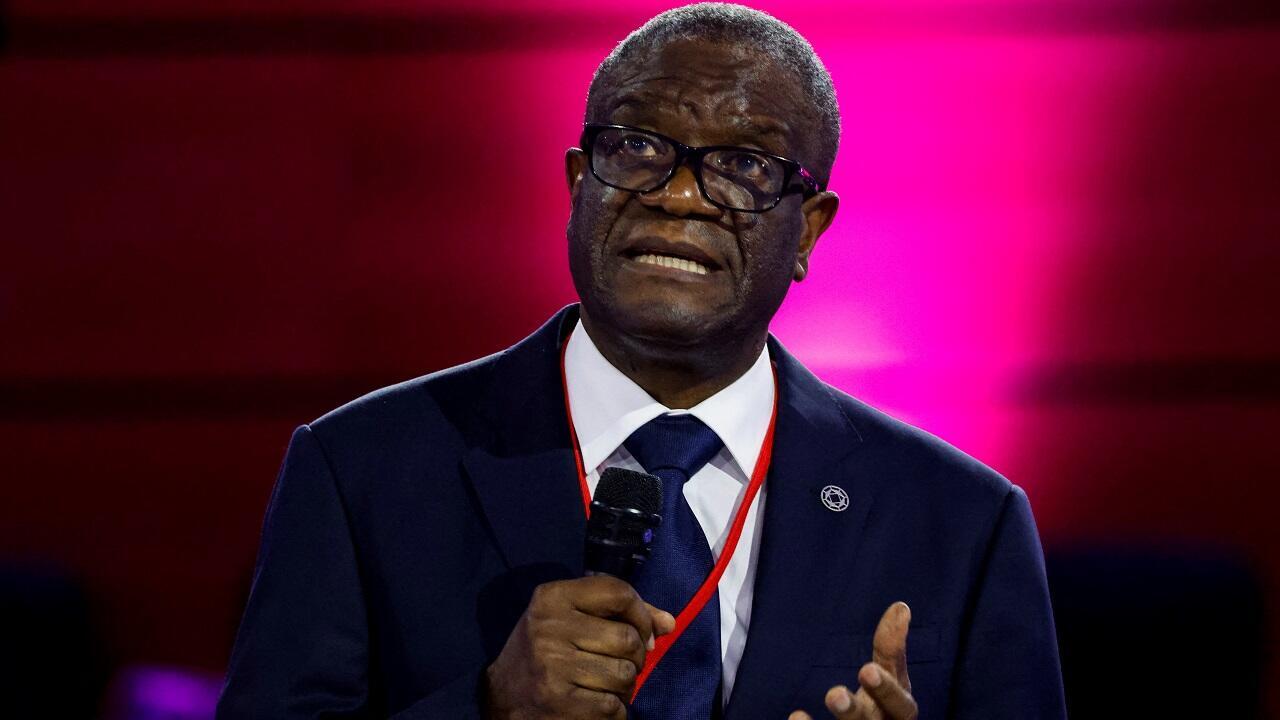"Fright", "atrocities", "fear and horror" ... The lexicon used by Denis Mukwege is revealing of the situation in North Kivu and Ituri, in the east of the Democratic Republic of the Congo.
The famous doctor, Nobel Peace Prize winner in 2018 for his fight against sexual violence, paints a terrible portrait of this region bruised since the end of the 1990s by armed violence.
The state of siege established on May 6 by President Félix Tshisekedi, coupled with the presence of UN forces from MONUSCO, has not put an end to the violence.
On the contrary.
Possible
"
war crimes, crimes against humanity and crimes of genocide
"
"The security situation does not seem to be improving in these provinces", notes Denis Mukwege, for whom the killings and rapes which led to the flight of more than five million people according to the United Nations form "a tragic and scandalous situation, more bearable ".
Noting "the failure of political and security solutions", the nobelized gynecologist urges the UN to become more involved.
He calls on him to "set up without delay a team of investigators" whose mission will be "to exhume the many mass graves" and "to collect and preserve the evidence of acts likely to constitute war crimes. , crimes against humanity and crimes of genocide perpetrated in the Democratic Republic of the Congo ".
Denis Mukwege, head of the Panzi Foundation, also calls for "the establishment of an International Criminal Tribunal for the Democratic Republic of the Congo and support for the establishment of specialized mixed chambers to render justice to the victims of the most serious crimes. serious ".
And there are many.
More than 1,200 civilians killed since the start of the year
The armed groups in the East, numbering 122 in 2020 and with heterogeneous demands according to a report by the Kivu Security Barometer (KST), have not weakened. The massacres follow one another in the region in an endemic way, forcing more and more inhabitants to flee. On September 4 and 5, another thirty villagers were killed in Ituri, in an attack attributed to the Allied Democratic Forces group. These new victims add to an interminable series.
The KST collects facts and figures, and its record is dramatic: since 2017, it has recorded more than 4,200 incidents, more than 6,100 kidnappings and more than 5,000 violent deaths. Since the start of 2021, more than 1,200 Congolese civilians have been killed in the east, confirms the United Nations High Commissioner for Refugees, which also reports more than 1,100 rapes. Almost 600 people have died since the state of siege, according to the KST count. Hence the recurring criticisms of its effectiveness.
The press is not spared.
In August 2021 alone, the journalist Héritier Magayane was slaughtered, then his colleague Joël Musavuli and his wife were stabbed to death.
In May, only 23-year-old Barthélemy Kubanabandu Changamuka was shot dead outside his home.
Reporters Without Borders was moved by these murders and the multiple acts of violence recorded in the Democratic Republic of the Congo against journalists.
In June, the NGO rose up against Congolese soldiers who allegedly threatened journalist Daniel Michombero with death, brutalized his wife, vandalized his home and stole his equipment.
The health crises have also revived this violence
Over the past two years, armed groups in eastern Democratic Republic of the Congo have engaged in a growing number of violent abuses.
Head of State since January 2019, after 18 years of presidency of Joseph Kabila, Félix Tshisekedi has not found common ground with these groups, who had nevertheless laid down their arms at first.
"In the absence of a solid national demobilization program, a large number of ex-combatants are already resuming the bush", analyzed researcher Christoph Vogel in the columns of the daily Le Monde in February, after the assassination of the Italian ambassador near from Goma (North Kivu).
The deterioration of the health situation has also, despite itself, contributed to the increase in violent actions in the country.
"As the public authorities are focused on the fight against the Covid-19 pandemic and other diseases, they have reduced their disarmament, demobilization and reintegration efforts," says Amnesty International.
It was to restore peace in these provinces that President Tshisekedi declared a state of siege in the spring: military governors were appointed and the security forces seized power in the east on May 6.
And while it was only to last a month, deputies extended it on August 30 for the seventh time, despite skepticism on the part of Congolese society.
The summary of the week
France 24 invites you to come back to the news that marked the week
I subscribe
Take international news everywhere with you!
Download the France 24 application
google-play-badge_FR

